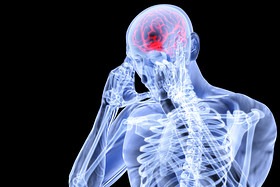To delay dementia, try challenging (vs. routine) brain stimulation…up to a point
 Brain games that could pay off in retirement (MarketWatch):
Brain games that could pay off in retirement (MarketWatch):
“Cognitive aging is the biggest health crisis in our country,” said Denise C. Park…the monetary cost of dementia in the U.S. tops $157 billion annually, according to estimates by the Rand Corp.—and that number could more than double by 2040 if the current trend continues…
Park’s recent research focused on brain stimulation through a variety of real-life activities. Researchers separated healthy adults between the ages of 60 and 90 into six groups over the course of the 14-week study…“Based on our findings, I would suggest that people do activities that are mentally challenging, but not so much that it becomes aversive,” Park said.
Researchers called this type of activity “productive engagement.” It refers to tasks that involve active learning and sustained memory activation. The real-life takeaway: It’s best to find a hobby or job that challenges you, but not so much that you’re frustrated and want to give up, Park said.
In contrast…the group that received activity packets used “receptive engagement.” These activities, including magazines and crossword puzzles, relied on passive observation, the activation of existing knowledge, and familiar activities. Participants in this group also improved on the tests, Park said, but not nearly as much as those studying quilting and/or photography…
Outside of academia, brain fitness has become a big business: the brain training and cognitive assessment market reached an estimated $1.3 billion in 2013, up from an estimated $210 million in 2005, according to SharpBrains, a San Francisco-based independent market research firm. While some brain-training programs focus on children and adults with attention deficit disorders, many target older customers, pitching brain workouts on computers as a way to help ward off dementia.”
Related articles:


